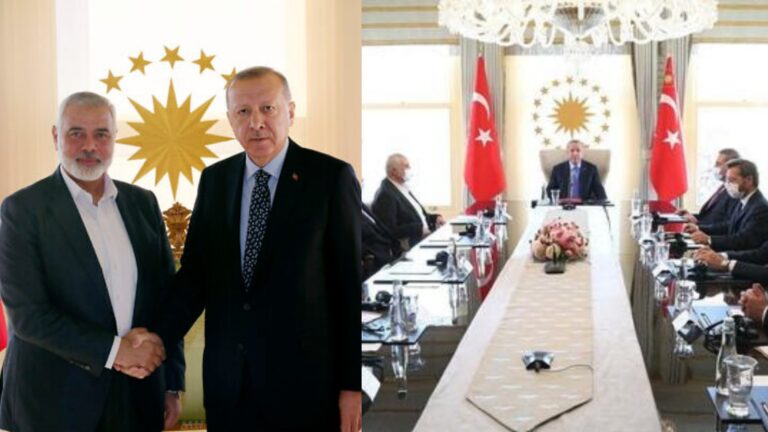 As Donald Trump focuses his campaign on the general election, his past public statements hint at how he might try to broaden his appeal beyond Republican primary voters.
As Donald Trump focuses his campaign on the general election, his past public statements hint at how he might try to broaden his appeal beyond Republican primary voters.
In a phrase: flip-flop. Again and again, Trump has changed his positions on major questions of public policy.
Here’s an overview of a few of the presumptive Republican presidential nominee’s many reversals.
1. The minimum wage
Most recently, Trump shifted his position on the minimum wage on Wednesday in an interview on CNN.
“I’m actually very different from most Republicans,” Trump said when asked about raising the minimum, saying he would be “open to doing something with it.”
Trump’s tentative support for an increased minimum wage is at odds with his past statements on the question. At a debate in November, he rejected an increase, saying that it would make it more difficult for U.S. firms to compete with foreign rivals.
“I hate to say it, but we have to leave it the way it is,” he said, saying that wages were already “too high” for business.
2. Taxing hedge-fund managers
In an interview on Fox News in August, Trump said he thought that hedge-fund managers should pay more than they do in taxes, and implied Hillary Clinton was too close to Wall Street to force them to pay their share.
“The hedge-fund guys are the ones that are giving her the money,” he said. “They’re not paying enough tax.”
Later, though, Trump released a tax plan that would likely reduce taxes for most hedge-fund managers. While closing one loophole that some managers use to pay less in taxes, the plan would broadly reduce taxes in general, especially for the wealthy.
The nonpartisan Tax Policy Center projects that Trump’s plan would increase the annual incomes of the poorest 1 in 5 Americans by 1 percent on average (about $128), while increasing the incomes of the richest 1 in 5 by nearly 10 percent (about $25,000).
3. Health care
In the past, Trump has advocated for a national health-care system similar to one proposed by Bernie Sanders, the Democratic candidate for president who calls himself a “democratic socialist.” Both men have pointed to the Canadian system, in which the government takes the place of the private insurance industry in the United States, as a model to emulate in the United States.
“I believe in universal health care,” Trump told CNN in 1999. He expanded on his ideas in a book published the next year.
More recently, however, Trump has said that he does not think a national single-payer health-care system like the one in Canada would be appropriate for the United States.
“It works in Canada. It works incredibly well in Scotland,” he said at the first GOP debate, held in Cleveland last August, before saying that he supported a “private system” for this country.
4. Immigration
Throughout the campaign, Trump appeared to change his position several times on skilled immigration, creating some confusion among the press. The campaign eventually issued a statement setting the record straight.
The controversy focused on H-1B visas, which are granted to skilled foreign workers at the request of U.S. firms that need their expertise, allowing them to stay and hold jobs in the United States legally. Critics of the program say that abuse is rampant – that many visas are granted even though there are plenty of Americans with the skills to do the job, and that some firms exploit immigrants who carry the visas by threatening to send them home.
In a proposal issued by his campaign in August, Trump pledged to restrict the program, but he appeared to reverse himself a few months later, saying he had no objection to the program as long as the immigrants followed the law.
“We’re losing some of the most talented people,” he said at a debate in October on CNBC. “They go to Harvard. They go to Yale. They go to Princeton. They come from another country, and they’re immediately sent out. I am all in favor of keeping these talented people here so they can go to work in Silicon Valley.”
“Are you in favor of H-1Bs or are you opposed to them?” CNBC’s Becky Quick asked him.
“I’m in favor of people coming into this country legally,” Trump replied. “It’s fine if they come in, but they have to come in legally.”
In March, after the issue came up again in debate, Trump’s campaign issued a statement from him reiterating his initial stance. “I will end forever the use of the H-1B as a cheap labor program, and institute an absolute requirement to hire American workers first for every visa and immigration program,” the statement read.
5. Abortion
In the past, Trump has supported a woman’s legal right to an abortion. “Look, I’m very pro-choice,” he told NBC News in 1999.
That has changed since then, Trump said at the debate in Cleveland.
“I’ve very much evolved,” he said. “What happened is friends of mine years ago were going to have a child, and it was going to be aborted. And it wasn’t aborted. And that child today is a total superstar, a great, great child. And I saw that.
“I am very, very proud to say that I am pro-life,” he said.
The Washington Post · Max Ehrenfreund











One Response
Trump has only one political principle: Trump. He is a supporter not of Big Government but of Humongous Government. He has flipflopped all over the map on issue after issue and he loves to make irresponsible comments like the one about having the US not pay its debts.
He is also a misogynist nativist bigot.
How people who say they are conservatives can support him is beyond me — unless the new meaning of the term “conservative” is misogynist nativist.